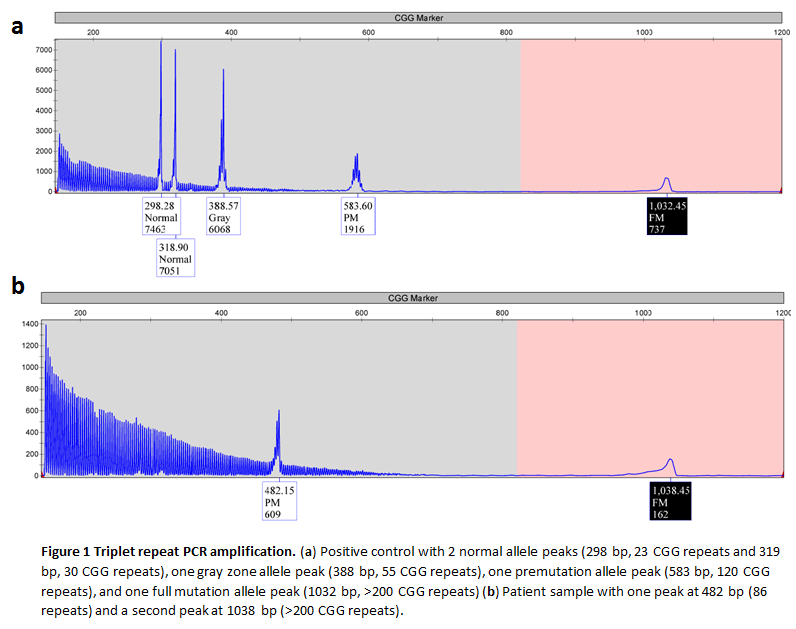
![]() Daniel Geisler, MD and Tim D. Oury, MD, PhD
Daniel Geisler, MD and Tim D. Oury, MD, PhD
![]() Department of Pathology, University of Pittsburgh Medical Center, Pittsburgh, PA, USA
Department of Pathology, University of Pittsburgh Medical Center, Pittsburgh, PA, USA
CLINICAL HISTORY
A male toddler with an unremarkable birth history, atrial septal defect, mild left pulmonary artery stenosis and recurrent otitis media presented with concerns for global developmental delays and behavioral issues. His mother first recognized signs of early developmental delays within his first year. Developmental milestones of rolling over and crawling were delayed, but he started walking at the appropriate age. She feels he is still somewhat clumsy but he is able to run and to climb stairs. The mother reported that he does not seem to have a desire to learn and is relatively nonverbal. Furthermore, the patient exhibits many oppositional behaviors. He is hyperactive, aggressive with peers, will bite his mother if he is excited or upset, and has frequent temper tantrums. He is an anxious child and will usually hide behind his mother in new situations. His mother describes that she is exhausted as he constantly demands her attention and involvement. The patient's family history is significant for a maternal uncle who has Dandy-Walker malformation, anxiety, attention-deficit hyperactivity disorder, and autism spectrum disorder.
The patient started early intervention shortly after the onset of symptoms, but therapies were limited due to his oppositional behaviors. After evaluation by a developmental pediatrician, he did not meet diagnostic criteria for autism spectrum disorder. The physical exam was unremarkable, an audiology test was normal, and a brain MRI showed no evidence of focal parenchymal abnormality. Given the patient's medical history, global developmental delays, behavioral issues, as well as a family history of a maternal uncle with brain malformation and similar behavioral issues further genetic testing was undertaken. SNP micro-array analysis was negative for copy number alterations. FMR1 gene mutation analysis by PCR for Fragile X Mental Retardation is shown in Figure 1.
